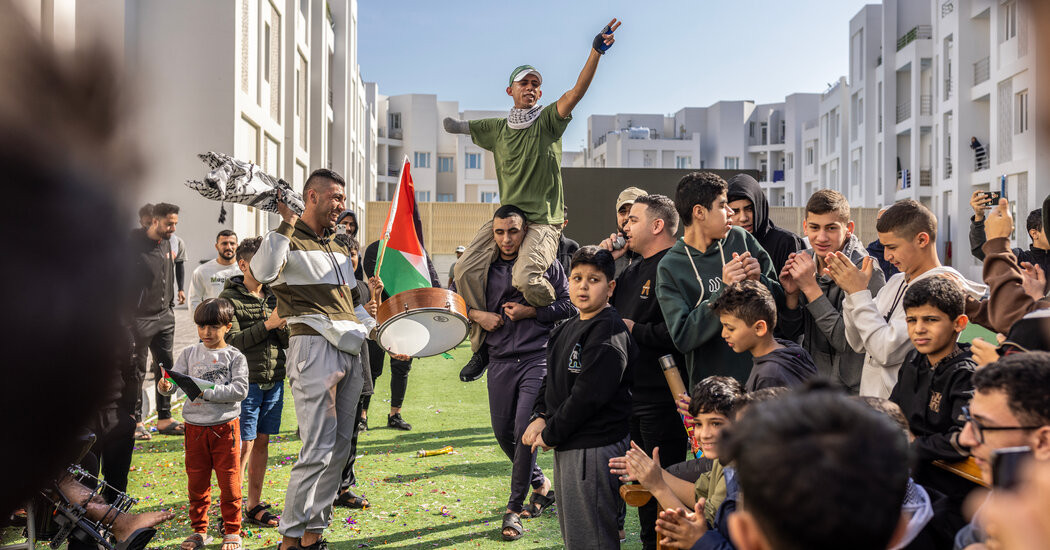

After the fighting paused, Hamas began to free some of its hostages, releasing 3, and Israel said it had released 90 Palestinian prisoners.
The sounds of celebration replaced those of explosions in the Gaza Strip on Sunday as a fragile cease-fire came into effect after 470 days of war, allowing some hostages to return home to Israel, Palestinians imprisoned in Israel to be released, and displaced Gazans to search for what was left of their homes.
Under the terms of the laboriously reached deal, fighting between the Israeli military and Hamas militants stopped at 11:15 a.m., raising hopes for a more lasting end to a war that has plunged the Middle East into fear and uncertainty.
The first hostages — three women seized when Hamas attacked Israel on Oct. 7, 2023 — were released shortly afterward. Early Monday morning, the Israeli prison service said it had released 90 Palestinian prisoners being held in Israel, where they were met by excited family members.
At the same time, stepped-up aid deliveries — over 630 trucks in a single day — made their way into Gaza.
Joyous Palestinians honked car horns and blasted music in the central Gaza city of Deir al Balah, where children ran around in the streets. Israelis celebrated, too, as the hostages began returning, with anxious families anticipating the release of still more.
But underlying the relief was the knowledge that this phase of the cease-fire is to last just 42 days and free only some of the hostages, and that big diplomatic hurdles lie ahead if it is to be extended. Israel and Hamas reached the deal in part by putting off their most intractable disputes until a nebulous “second phase” that neither side is sure it will reach.